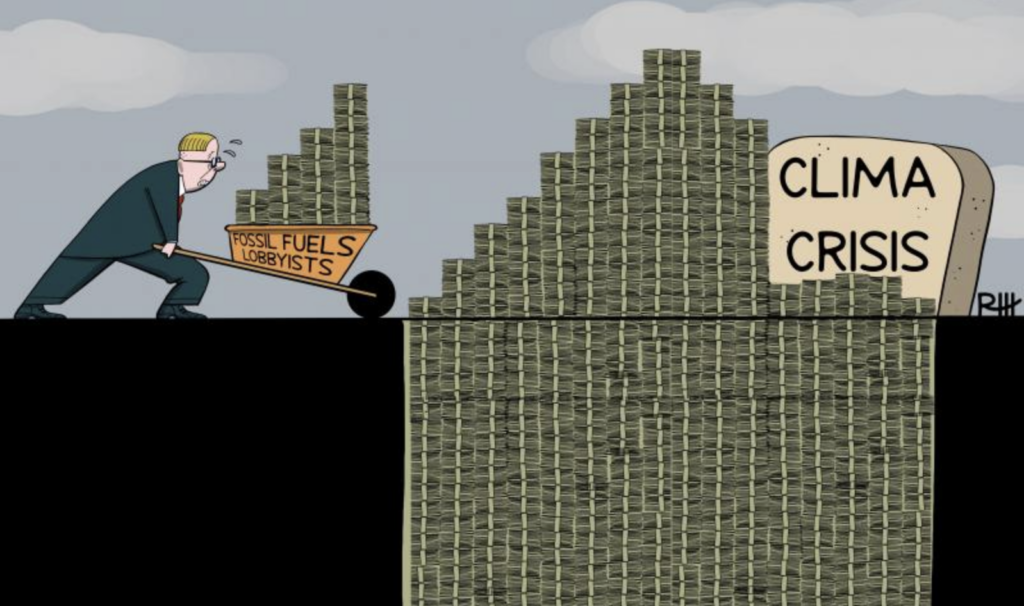On my latest podcast, I had the fortune of hosting Michael Shermer, who is the founder of Skeptic magazine and author of the important new book The Believing Brain. Shermer is also a self-identified libertarian, but one who drew much attention in 2006 when he dropped his global warming skepticism and embraced the scientific consensus that we’re causing climate change to happen.
However, oddly, Shermer still isn’t really worried about global warming. He falls into roughly the same camp as Bjorn Lomborg, arguing that it isn’t likely to be a big deal and will be something we can manage. Here is Shermer’s summary of Lomborg’s answers (in the film Cool It) to two key questions that one must confront if one accepts global warming is happening and caused by humans.
Q: How much warmer is it going to get?
A: Probably a little, very unlikely a lot.
Q: What are the consequences of a warmer climate?
A: Debatable depending on how much warmer it will get, but very likely the consequences will be minor.
Now, this baffles me. I don’t understand how anyone could be so confident warming would be on the low end of the projections, and not that big a deal.
When I had Shermer on the show, it was not my goal to debate him about global warming…I wanted to hear about his important new book, which explains all manner of strange beliefs, and how we doggedly rationalize them. Still, I knew I had to press him somewhat on the issue—politely, of course–or listeners would feel I hadn’t done my duty. In fact, as soon as I announced I was doing the show, I got blog and Facebook comments goading me to do precisely this.
What’s interesting is what then ensued—starting around minute 5:30, running to around minute 13:00. First, Shermer affirmed the consensus of the IPCC and that we should trust its assessment of the science—“if there were problems, they would find them”–and called “ClimateGate” “much ado about nothing.” Clearly, he is no denier.
But then he made the argument above—warming probably won’t be that much, and the consequences probably won’t be that bad. “The further out on the time horizon you go, the wider the error bars get,” Shermer explained—which is very true. He agreed that the warming could be on the higher end of the projections, rather than the low end, but his response to this was, “let’s pay attention and keep track of what’s going on as time unfolds.”
I then pressed him about just how bad global warming could be if it isn’t on the low end, to which Shermer responded by saying I was endorsing the “precautionary principle”—which I suppose I am. Shemer’s take was this:
I’m skeptical of the precautionary principle, not just with the global warming thing, but in many areas..It is easy to make the case for the precautionary principle in one particular area, but there are so many places in society where we need to spend money…
And he then went on to cite health care as an example. Again, fair enough.
My next strategy, however, was to try to explain that global warming isn’t like all the other issues where one hears the precautionary principle cited—this is the issue that’s really different. This is the one that changes the whole planet. This is the one that you really don’t mess around with. But Shermer still wasn’t convinced: “Let’s just wait and see. I’m more of the wait and see kind of camp. I’m just not worried about it.”
Effectively, policy wise, we are in a wait and see attitude anyway. But having been through this exercise, I now get what it is that I think one has to do to convince a Michael Shermer that global warming is a big, big problem, and not one you wait around on. And I hope, in the spirit of rational inquiry and reasoned debate, he won’t mind if I take the argument a little further now.
I really think the core way of convincing someone like Shermer, who is very scientifically minded, has to be based on physics. So here goes.
First, the excess CO2 that we put in the atmosphere lasts there for centuries—so if the warming isn’t on the low end, we’re stuck with it. This suggests that waiting around could be a pretty bad idea. Is that a risk worth taking?
Second, we know what the planet was like with vastly elevated levels of CO2 in the Earth’s past. Here’s the extreme, as described by Harvard’s Dan Schrag: “50 million years ago, we believe that carbon dioxide was between 4 and 10 times higher than present. At that time, sea level was 100 meters higher, the deep ocean was 12 degrees C (compared with 2 to 4 degrees today), crocodiles lived on Greenland, and palm trees lived in Canada.”
Shermer might reply that we’ll never let it get that far, and that may be true. But crucially, the melting of the Greenland and West Antarctic ice sheets happens somewhere along the way to the crocodiles-on-Greenland world, and while we don’t know exactly where that is, there are reasons to think it is much closer to where we are now than to the world Schrag describes.
Greenland alone contains enough water to raise sea levels globally by as much as 7 meters, and published evidence suggests that Greenland can be destabilized at somewhere between 400 and 560 parts per million of carbon dioxide in the atmosphere. And we’re already pushing 400. And that’s just Greenland.
Given all of this, I have to say that global warming is just about the best issue on which to make a “precautionary principle” argument that I’ve ever heard of. I’m not sure what Shermer would say to this, but for me, this really doesn’t sound like a case where “wait and see” is a good policy.
Subscribe to our newsletter
Stay up to date with DeSmog news and alerts







